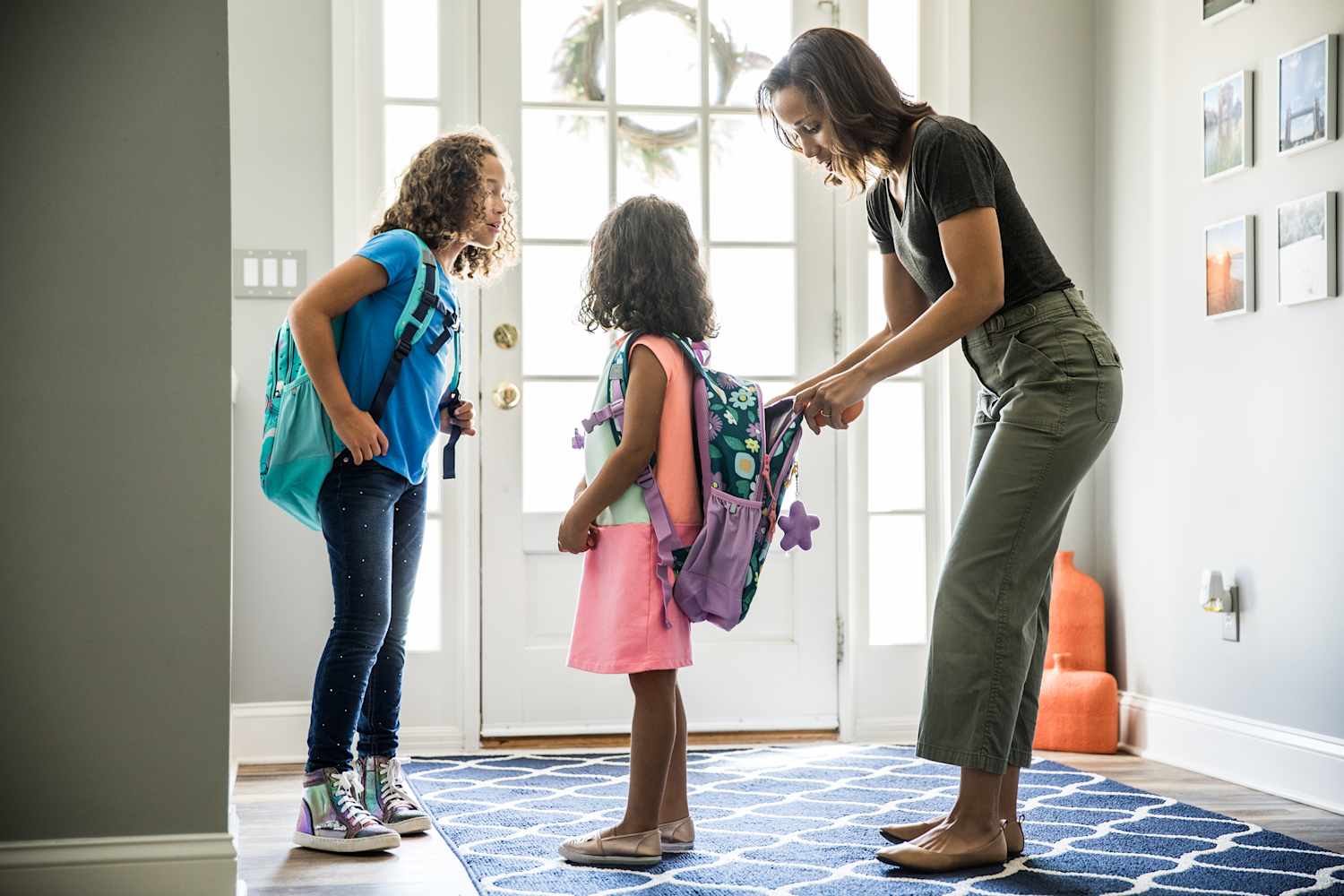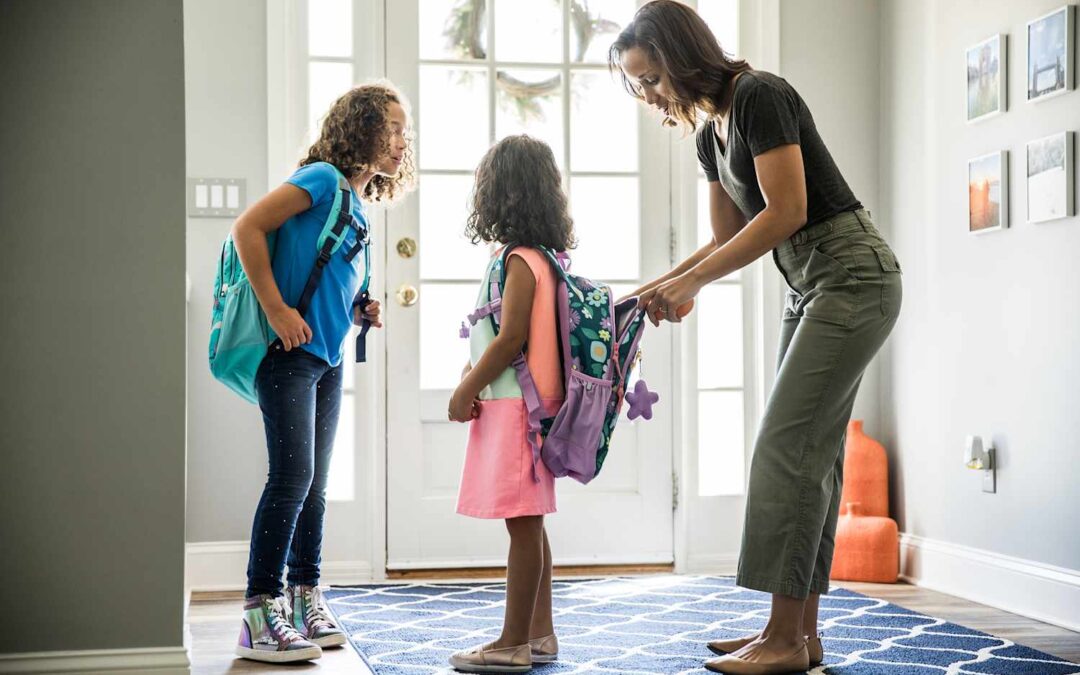
Most parents turn to their child’s pediatrician for almost everything during the school year. And understandably so. That inevitable first sore throat warrants a call to the doctor. Ditto when it comes to that suspicious rash that popped up after recess. And what if it seems like they can’t keep up at the same rate as their peers? The list is nearly endless once the school year begins, but what about before then?
While most of the parent population spends the weeks leading up to the academic year with backpacks, lunches, and school supplies on the brain, pediatricians have a different playbook. And so we asked them how they prepare their own kids for back-to-school season, and learned exactly what the doc ordered:
1. Get back to an earlier bedtime.
As you might have guessed, pediatricians start preparing their kids for the start of school well before the first day. In fact, Katie Lockwood, MD, attending physician with the Children’s Hospital of Philadelphia Primary Care Network, associate professor of pediatrics at the University of Pennsylvania, and host of the Primary Care Perspectives podcast, transitions her kids from the fun-filled late nights toward an earlier bedtime at least two weeks in advance.
“It takes a while to readjust, and you don’t want to wait until the night before school starts,” the mom of two tells Cubby.
According to the American Academy of Pediatrics (AAP), school-age kids need nine to 12 hours of sleep and teens need eight to 10, so work your way backwards when establishing their school year bedtime. This way, kids will hopefully have an easier time waking up and staying alert during class.
2. Don’t overplan the first two weeks of school.
As for the two weeks after school starts? Well, that’s when Lockwood is thinking about scheduling. Or, rather, a lack thereof.
“No matter how old your child, the first two weeks of school are a big transition,” she says. “I try not to plan anything big after school or on the weekends in the first two weeks to give my kids lots of downtime to relax and acclimate to the new routine.”
Read: Soccer sign-ups and family reunions can be put on pause.
3. Make sure all vaccinations are up to date.
What shouldn’t be put on pause is your child’s regular vaccination schedule (plus a flu shot in the early fall!) and conversations about good hygiene.
“I always remind my kids to wash their hands often because the start of the school year means the sharing of germs,” Lockwood says. She also stocks up on hand sanitizer for her kids to have in case a sink isn’t generally available and to use before lunch.
4. Remind kids to stick to their own lunch boxes.
As for lunchtime, that can be a prime time for germs to make their way around a school. It might seem fun and nice for friends to share their snacks, but parents should remind their kids to stick to their own lunch boxes.
Jennifer Walker, RN, BSN, pediatric nurse, podcast host, and cofounder of Moms on Call, says her kids have a strong understanding that they shouldn’t share food or straws with other people. “So much so that once my sister offered them a lollipop that she had already licked, and they replied, ‘In our house we don’t share food other people have already licked.’”
Most schools should have school lunch information readily available. Be sure to walk your kids through the steps of ordering lunch at school, should they need to, so they don’t have butterflies in their empty tummy.
5. Make sure kids know their address and phone number.
And while you’re in practice mode, keep this tip in mind: Walker says she would also have her sons practice reciting their address and phone number, and she helped them recognize who to ask for help. These are all good things to know in case of an emergency.
But pediatricians aren’t only considering their little learners’ physical health and safety. They are also thinking about their kids’ mental health when preparing for the school year. Tracy Burton, MD, pediatrician and chief medical officer of As You Are, always has open-ended conversations with her child about school and their feelings.
“I tell parents to think of these chats as gentle check-ins instead of a big, one-time conversation,” Burton says. “In the middle of prepping for dinner, you might ask, ‘How are you feeling about school starting?’ Or while running an errand, ask, ‘What are you most looking forward to this year?’”
This isn’t about grilling kids, but about giving light prompts and following their lead. Toward the end of the summer, Burton plans to ask her 10-year-old questions about both their social life and academics.
“Questions like, ‘It’s normal to feel butterflies, do you remember what helped last year?’” she lists. “‘Are there any friends you’re excited to see again? Is there someone you’re unsure about?’ and ‘How do you feel about having a little more homework this year?’”
When in doubt, parents should feel comfortable checking in with their child’s pediatrician and/or educators before and during the school year. And, Walker reminds herself and others that this is a “wonderful” and “exciting” time to allow kids to navigate new freedoms and challenges.
“Challenges are good for kids,” she says. “Just recognize they are strong, adaptable, and resilient, and help them understand that it is OK to ask for help. This communicates that you trust in their decision-making and that you are more interested in what they are capable of than afraid of what they are not.”
This post originally appeared on Cubby. See it here: How Pediatricians Prepare Their Kids for Back-to-School Season

